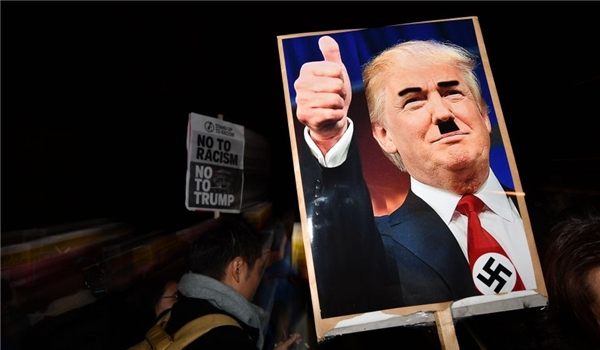
RNA - At one point during Donald Trump's presidential campaign, Mona Ahsan's 14-year-old son asked her if Muslims would be forced to wear crescents as a mark of identification if Trump was elected.
"It wrenched my whole gut," said Ahsan, of her son's question, alluding to the Nazi practice of forcing Jews to wear Star of David armbands and badges in occupied Europe.
"It's just not right. I know (my son) was concerned about the matter."
Local Muslims are registering fear, disbelief and shock at Trump's ascendancy, especially in light of his proposal of banning Muslims from entering the U.S. and his suggestion that Muslims carry identification cards.
The immigration ban was proposed last December after the killing of 14 people in San Bernardino, California, by a couple who had been "radicalized." In June, Trump proposed to stop any immigration from countries "compromised by terrorism," generally seen as an expansion of that ban.
In a March interview with CNN's Anderson Cooper, Trump said he thought that "Islam hates us."
But local Muslims see Trump's election as a way to galvanize those removed from the political process, especially those who came to the U.S. to escape authoritarian regimes.
It also presents an opportunity, said Ahsan, a Springfield attorney who deals with immigration and civil rights issues, to show how integrated Muslims already are in the community, in jobs and community volunteer efforts.
Maryam Mostoufi likened the Muslim situation the last eight years to a pressure cooker.
"It's been heating up and heating up and heating up and Donald Trump opened the valve," said Mostoufi, who often speaks on behalf of the local Muslim community, which has about 300 members from over 30 different countries.
Leaders, like Mostoufi and Ahsan, will try to counteract fears by pushing for more political and community involvement.
"Mona and I try to talk to others about what the Constitution says and their Constitutional rights are," Mostoufi said. "We need to be ready to join groups that stand in challenge of (any) abridgement of those rights.
"There are a lot of first-generation citizens (in the local Muslim community) who may not have been involved in the political process because they don't trust the system. They came from countries where they were victims of the political process. They may speak limited English, but we need to hold their hand and tell them not to be fearful."
847/940